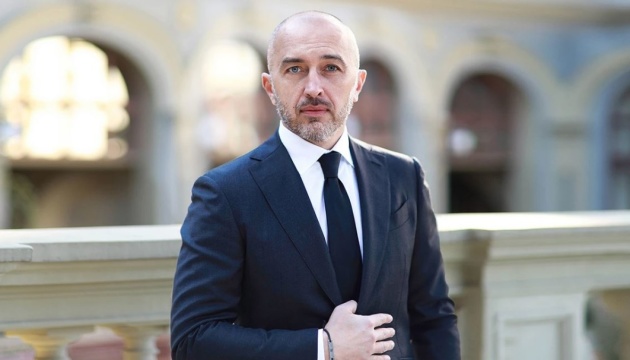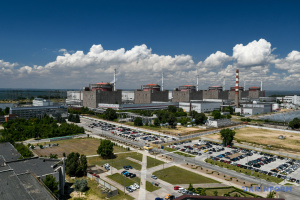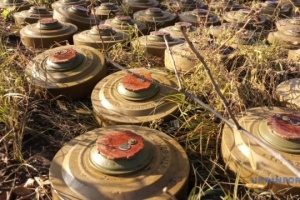
Ukraine’s economy is overcoming the war’s challenges
The risk of getting less than enough international funding for this year has eased. The country is moving forward with reforms. Businesses are quickly adapting even to power outages. Is this enough to preserve macrofinancial stability and sustainable recovery?
In H1 2024, Ukraine’s economy showed significant resilience. The economy not only withstood the pressure of the war’s unprecedented challenges and power shortages, but also continued to recover. The groundwork for this resilience had been laid by macrofinancial stability ensured by the NBU’s and the government’s decisions and significant international support.
Specifically, inflation slowed to 3.2% in April, and has since remained moderate even after picking up. The budget deficit has been funded without issuing a single hryvnia’s worth of monetary financing, and international reserves are at sufficient levels. However, the war persists, as do its risks and challenges to our economy – and beyond.
What will H2 2024 and 2025–2026 be like? Inflation will pick up, but will trend lower as soon as next year and head back to the NBU’s 5% target. The economic recovery will continue, but it will slow to 3.7% in 2024. In the next two years, GDP growth is expected to accelerate to 4%–5% a year.
This is the gist of the NBU’s new Inflation Report. Because of unprecedented uncertainty, however, we have built our forecast around a set of assumptions. The macroeconomic landscape will largely depend on whether they materialize.
Assumptions behind the forecast: a foothold to stand on amid uncertainty
Although the NBU assumes that conditions for economic activities will gradually normalize, our forecast ultimately depends on the risks associated with the course of the war.
A protracted high-intensity war will limit our economic potential, put pressure on prices, and lead to higher budgetary needs. This will in turn fuel more uncertainty and risks, because we don’t know what steps russia will take. Destruction of housing infrastructure, children’s hospitals, energy terror – all of it used to seem impossible. It appeared unthinkable that the 21st century would see a full-scale war. But now it is reality. The war grinds on.
Another assumption in the forecast is that international aid will keep coming in. Ukraine remains reliant on it, but not because we aren’t working hard enough. On the contrary, our partners have repeatedly emphasized that Ukraine has exceeded their expectations in terms of consolidating its capabilities, implementing reforms, and meeting its commitments.
Our needs for funding are shaped by the full-scale war unleashed by russia. The war has fueled a surge in budget expenditures. A large part of this year’s deficit (some USD 38 billion) will be very difficult to cover without financial aid from abroad, even though we have succeeded in revitalizing the domestic debt market, expanding the tax base, and building up a margin of safety. And we are grateful to the European Union, the United States, the International Monetary Fund, and other partners for support programs they have already approved.
However, funding for the upcoming years has yet to be secured, and we are constantly working with international partners to make it happen. It’s vital for Ukraine to receive at least USD 31 billion and USD 21 billion in 2025 and 2026, respectively. We also hope that subsequent positive decisions will be made regarding the use of frozen russian assets. Proceeds from such assets will substantially reduce the risk of funding being insufficient and are especially important in light of elections in partner countries.
Economy: a gradual recovery, provided there is enough international aid and the energy system is relatively resilient
In Q1 2024, economic recovery accelerated to 6.5%. But russia’s targeted attacks on Ukraine’s energy infrastructure caused significant losses to the energy system and led to longer power outages. A substantial electricity deficit emerged in Q2 already and deepened in early Q3 (due to hot weather and continued destruction). However, such energy terror failed to disrupt the Ukrainian economy: by our estimates, in Q2, real GDP continued to grow.
Our forecast remains rather conservative. We expect the economy to grow by 3.7% in 2024 and pick up to 4%–5% in 2025–2026. We assume that the power shortage will surpass 7% in 2024 and come close to 8% in 2025 and 5% in 2026 and remain one of the main factors restraining the economy. On the other hand, the recovery will be driven by significant budget expenditures thanks to international aid, by further development of export routes as demand for Ukrainian exports revives, and by the spread of distributed generation.
Inflation: a moderate increase in 2024 and a gradual return to the NBU’s 5% target going forward
The NBU has a mandate to preserve price stability. We have managed to achieve it in wartime. In 2023, inflation slowed by four-fifths, from 26.6% at the beginning of the year to 5.1% in December.
A major policy challenge for us now is to keep inflation subdued in 2024 despite its anticipated acceleration, and to bring inflation back to its 5% target in the following years. We plan to achieve this by safeguarding households’ hryvnia savings from inflation and by preserving the sustainability of the FX market.
What this really means is that we will tolerate exchange rate fluctuations, but only as long as they don’t prevent us from staying in control of inflation expectations and meeting our inflation target within the forecast horizon. On top of that, we will factor the hryvnia’s attractiveness into our decisions on the key policy rate. It’s not for nothing that the baseline scenario of July’s forecast envisages no key policy rate cuts before Q1 2025. However, we are willing to flexibly adjust our policy to maintain sustainability, on the one hand, and to not overtighten the economy, on the other hand.
By ensuring price stability and FX market sustainability, along with the banking system’s uninterrupted operation, we contribute to reducing uncertainty amid unprecedented challenges and disruptions. This is a prerequisite for enticing people to come back to Ukraine, receiving investments inflows, and setting the stage for reconstruction.
Given our priorities, we anticipate inflation will accelerate only modestly to 8.7% at the end of 2024, decline to 6.6% next year, and hit our unchanged target of 5% in 2026. Apart from monetary measures, this will be facilitated by slower increases in external prices and the gradual normalization of economic conditions.
International context: can we do without new black swans?
The consequences of russia’s war against Ukraine have rippled through and beyond the continent. They have already disrupted supply chains, fueled wide fluctuations in world prices, and propelled inflation to record highs in multiple countries. Governments around the globe have been forced to revise higher their defense budgets, which far surpass the volume of international support for Ukraine. The war is speeding up climate change. The terrible fallout from russia’s destruction of the Kakhovka HPP is just one example of the war’s devastating environmental footprint.
By invading Ukraine, russia upended the global order. This led to increased geofragmentation, stoked risks of a world war, and almost sparked a food crisis in 2022. Meanwhile, the war wears on. The destruction continues, and, as I said, we don’t know what else the russians are capable of doing as part of their war of aggression.
We appreciate that our partners are increasingly aware that Ukraine’s victory will indeed be a victory for the civilized world. Let me also cite my colleagues from the IMF who said that Ukraine’s victory is the best positive scenario for the world economy. This is the key to global macroeconomic stability: sustainable economic growth, low inflation rates, increased availability of credit financing, and many other things that are actually important to everyone.
Wars look distant until we begin to practice greater awareness of reality. If we want to prevent horrendous global disasters, we have to learn how to do it. We at the NBU are aware that we need to do much more than central bankers normally do, so that by the time we hear the priceless word Victory, we will have preserved macrofinancial resilience as a cornerstone of reconstruction. At the same time, the words partnership and support are integral elements of this equation that could really make Victory an accomplishment of the entire free world.
* The author's opinions do not necessarily reflect those of Ukrinform's editorial board.




